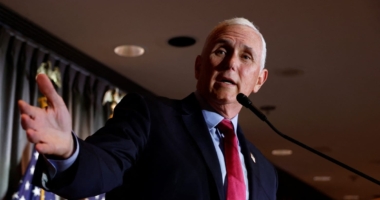Entities tied to China’s military are publicly traded on stock exchanges and through Exchange Traded Funds (ETFs) and other investment products. US investors may be unwittingly funding China’s military growth through these investments. Congress can work to halt such funding by passing legislation that would close the loopholes in US sanctions policy that currently allow money to flow to China’s state-owned entities.
America’s import-dependence on China remains a significant concern. A moonshot effort is required to incentivize the rebuilding of domestic production for essential medicines, rare earth metals, electronics, and military equipment. Taking action now to reduce reliance on China could prevent future military action while also decreasing the potential for resource-driven conflict.
In conclusion, it is essential for Congress to close the loopholes in US sanctions policy that allow money to flow to China’s state-owned entities. The US must reduce its reliance on China by promoting domestic industries that are currently reliant on Chinese imports. This effort can prevent future military action while also decreasing the potential for resource-driven conflict.
The US’s Dangerous Dependence on China Trade and the Implications for Conflict over Taiwan
Recent aggressive rhetoric from Beijing towards the United States is raising concerns about deteriorating relations between the two countries. Chinese President Xi Jinping has directly criticized Washington, urging Chinese companies to join the “fight” against US policies that have “contained and suppressed” the People’s Republic. If Beijing is preparing for an invasion of Taiwan, the possibility of military conflict has also increased.
In the event of war in the Pacific, the US would be at a significant disadvantage due to its heavy dependence on China for a wide range of necessities, from antibiotics to military hardware. Intelligence estimates suggest that China could invade Taiwan within the next 18 months, with CIA Director William Burns believing that Xi is preparing China’s military to invade Taiwan by 2027.
While war should always be a last resort, in a worst-case scenario, China’s invasion of Taiwan could lead to immediate sanctions by the US, with the US also assisting in Taiwan’s defense. However, China could respond in several ways, designed to cripple America’s economy.
In this context, it is worth noting that the US’s dangerous dependence on China trade is a significant weakness. The article “America’s most powerful weapon to beat China and Russia in Cold War 2.0 is free trade” argues that free trade is America’s most powerful weapon to beat China and Russia in the ongoing Cold War 2.0. By promoting free trade, the US can strengthen its economy, reduce its dependence on China, and be better positioned to compete in a globalized world.
In conclusion, while war is never a desirable outcome, the US’s dangerous dependence on China trade is a significant concern in any potential conflict over Taiwan. The US should take steps to reduce its dependence on China by promoting free trade and investing in domestic industries that are currently reliant on Chinese imports.
The Dangerous Dependency of the US on China for Key Exports
China’s control over the global supply of inputs for the manufacture of generic antibiotics is a significant concern. China currently controls around 90% of these supplies. Even the generic medicines used in American hospitals and ambulances are made with chemical compounds and ingredients that are almost exclusively sourced from China. Beijing is well aware of its stranglehold over America’s pharmaceutical supplies and has threatened to use “strategic control” over medical products to “ban exports to the United States” in the event of a conflict.
China’s hold over the world’s most important technologies is also a cause for concern. According to the Australian Strategic Policy Institute (ASPI), China’s global lead now extends to 37 of the 44 most advanced technologies, including defense, robotics, energy, and biotechnology. China’s chemical industry has become essential to America’s war-fighting equipment since the Pentagon relies on China for a key ingredient in Hellfire missile propellant.
In addition, China dominates the global production of rare earth metals, including the element antimony, which is used in everything from armor-piercing bullets to night-vision goggles. The US military would hit a wall in a conflict with China, and these shortfalls in both life-saving medicines and high-tech equipment would be even more concerning in wartime.
In this context, it is essential for the US to reduce its dependency on China by promoting domestic industries that are currently reliant on Chinese imports. The US must take steps to rebuild its manufacturing capacity for pharmaceuticals and other key inputs. Reducing the reliance on China can make the US better positioned to compete in a globalized world and strengthen its economy in the long run.
US Investors Unwittingly Funding China’s Military Growth
Entities tied to China’s military are publicly traded on stock exchanges and through Exchange Traded Funds (ETFs) and other investment products. CSSC Holdings Ltd. – China’s largest builder of military ships – is listed in several major investment indices, including MSCI Emerging Markets, MSCI ACWI, FTSE Emerging, and FTSE All-World.
US investors may be unwittingly funding China’s military growth through these investments. Congress can work to halt such funding by passing legislation that would close the loopholes in US sanctions policy that currently allow money to flow to China’s state-owned entities.
In addition to funding China’s military growth, America’s import-dependence on China remains a significant concern. A moonshot effort is required to incentivize the rebuilding of domestic production for essential medicines, rare earth metals, electronics, and military equipment. Without this effort, the US could be held captive to the whims of a major adversary.
Taking action now to reduce reliance on China could prevent future military action while also decreasing the potential for resource-driven conflict. It is unwise to cede economic freedom and national security to Beijing’s leverage, even if there is no immediate war between the US and China.
In conclusion, it is essential for Congress to close the loopholes in US sanctions policy that allow money to flow to China’s state-owned entities. The US must reduce its reliance on China by promoting domestic industries that are currently reliant on Chinese imports. This effort can prevent future military action while also decreasing the potential for resource-driven conflict.
Don’t miss interesting posts on Famousbio









